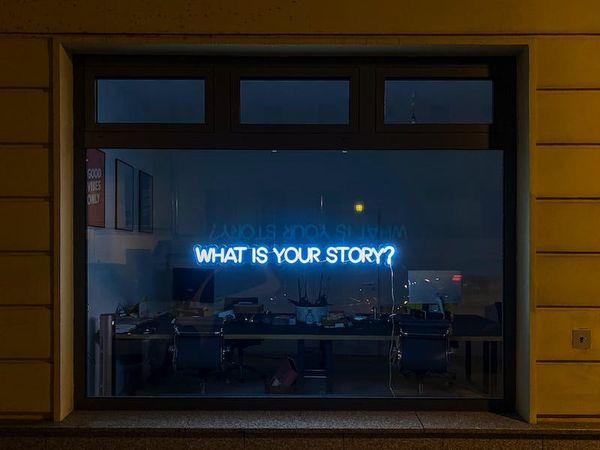What I Learned Making My First $1,000 Freelancing

Unfortunately, making my first $1,000 online wasn’t as glamorous as others may make it seem. And in some aspects, it was a failure.
First, let’s look at the story of my skillset and how I started freelancing.
Some background
If you’re new here, hi! I’m Joe, and I’m a college dropout. I studied physics for a semester in college, but decided that wasn’t for me, so I switched to studying digital marketing. The curriculum was pretty lackluster, so after my first semester and an internship, I ended up dropping out and getting a job at a local digital marketing agency. There, I was practically copying content and pasting it onto a client’s blog all day. Invigorating.
It was a good chance to learn SEO, however. After a year of that (and almost getting fired), I moved to a big agency, where I started to do more “real SEO,” from a holistic approach. After getting sick of corporate BS, I moved to a two person company, doing e-commerce SEO for large brands.
Throughout those experiences, I learned a good deal about SEO, and wanted to try my hand at starting my own business with it. I was desperate to make more money and quit my last full time job. I craved the freedom that I thought came with freelancing.
So I gave it a shot, and I was fortunate enough to make my first $1,000.
How I made my first $1,000 freelancing
Choosing my niche
Every guide to freelancing tells you to pick a niche. It ended up taking me a while to nail down my ideal client. First, I decided to just go for businesses in my area, but cold calling wasn’t really my thing. Instead, I ended up choosing digital agency owners who want to provide SEO to clients, but aren’t experts on the matter, and want to outsource it. I had great content ideas, and served similar customers in my first full time job, so I had ideas on what I could improve on.
Lesson: Niche down, and make sure you have a good understanding of your client, what they need, and what your competitors are currently serving. The blue-er the ocean, the better.
Finding a community
I created a website and tried to start ranking for keywords, but I found it much easier to go to the source directly. I found a community around a course that teaches agencies how to do and sell SEO. I joined their Slack group and started replying to job requests that I could take on. There weren’t very many people offering services in that group, so I was able to stand out.
Lesson: Go where your customers hang out, and possibly even where they discuss what you want to sell.
Pitching & sales
I’m terrible at sales. I hate talking with clients. I’d rather be working in the background, keeping to myself. However, even I was able to push past that and get a few sales.
All I focused on was figuring out where the client’s business is currently, and where they wanted to go. Then, how could I be the bridge for them? What skills do I have to support that?
Most of the work I did was one off, so I didn’t have to do much selling around monthly packages, pitching upsells, etc. I watched some of those “top 5 sales tips” videos, but found that being human and just having a conversation about the prospects’ needs and my experience was much more my style.
What I learned
Freelancing ≠ Freedom
I thought that the main reason I wanted to build a business was so that I could work for myself and start making more money. But after making $1,000, I realized that wasn’t the case. I procrastinated the work. I didn’t feel like doing SEO in my spare time. In fact, I could’ve made even more money, but I refunded a couple of projects because I just couldn’t force myself to do the work.
Actually servicing clients isn’t for me. I do enough of that at my day job. What I really wanted was to build a business that brought me freedom. Not one that took more time away from me. Granted, I could have gotten to a point where I could outsource the work and live on the margin, but I didn’t enjoy the process.
It’s okay to quit & fail
Society has an obsession with completion. Unfortunately, it leads us to indecision and negative mental health when we finally decide something isn’t for us.
With freelancing, I found that it wasn’t for me. And that’s okay. I failed on some of the projects, and while that isn’t a good thing, it isn’t a bad thing either. We assign subjective meaning to objectively neutral events, and then base our emotions off of it.
The good thing about failure is that it’s a data point. You tried something, ran an experiment, and if it fails, you have a data point of what not to do. When you bring too much emotion into it, you start to attack your identity instead of identifying it for what it truly is. A data point.
Don’t force yourself to complete something if it isn’t for you. Beware the sunk cost fallacy, and understand what you’re giving up in the present moment by not letting quitting on the thing you hate. Do things for your current self and future self, not your past self.
It’s possible
Seeing other people making money online is one thing, but it’s another to do it yourself. This year, I saw that it was entirely possible that I could’ve turned this into a full-time gig.
Know that you can too. If you’re reading this, I assume that you’re interested in building a business online or to start freelancing. It’s possible, but it’s not easy. My recommendation is to not just be another profile on a freelancing platform, but rather find a place where you can really stand out. Make sure you know your purpose, and that you love the work. If those two aren’t there, it’s extremely difficult to get through the ruts.



